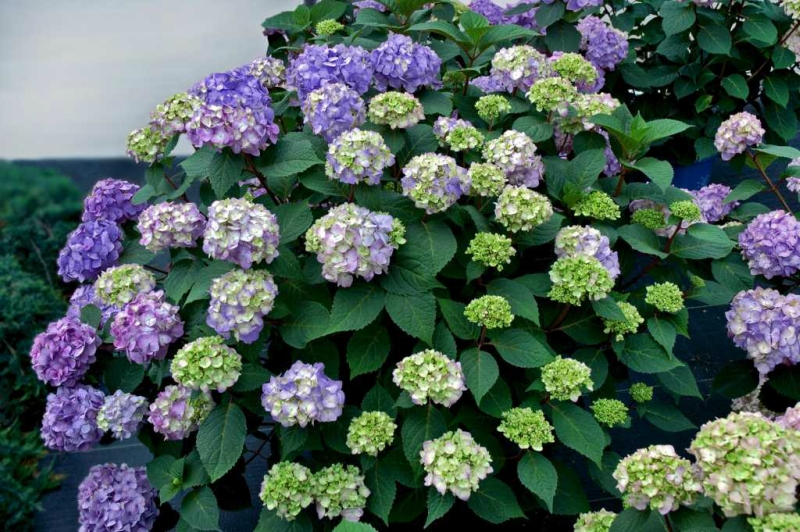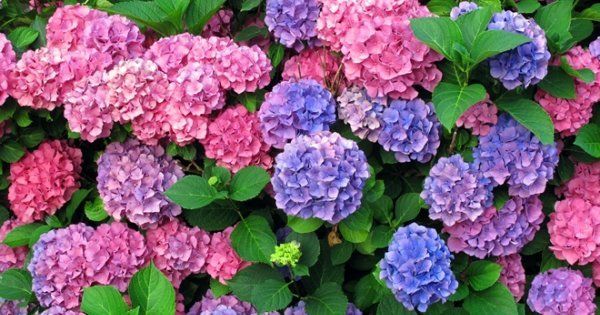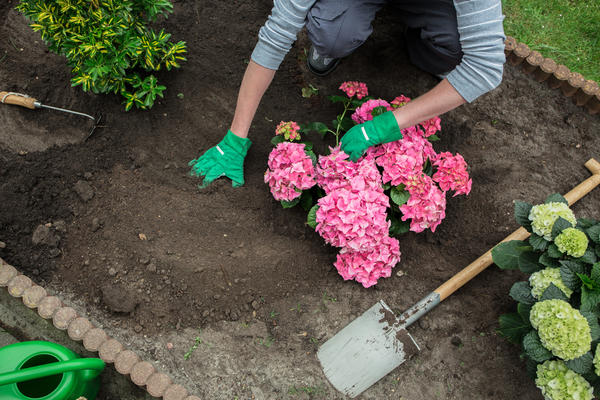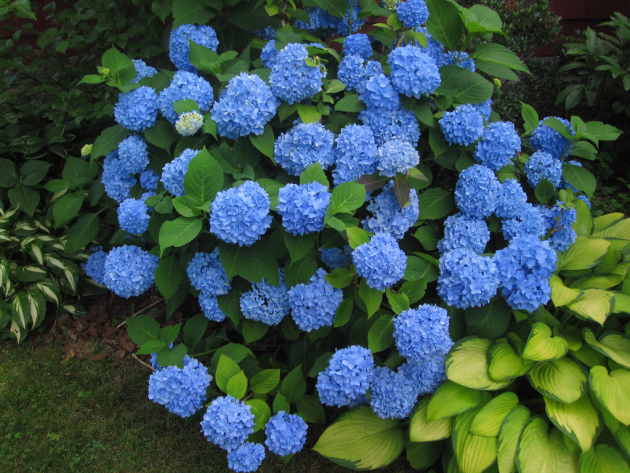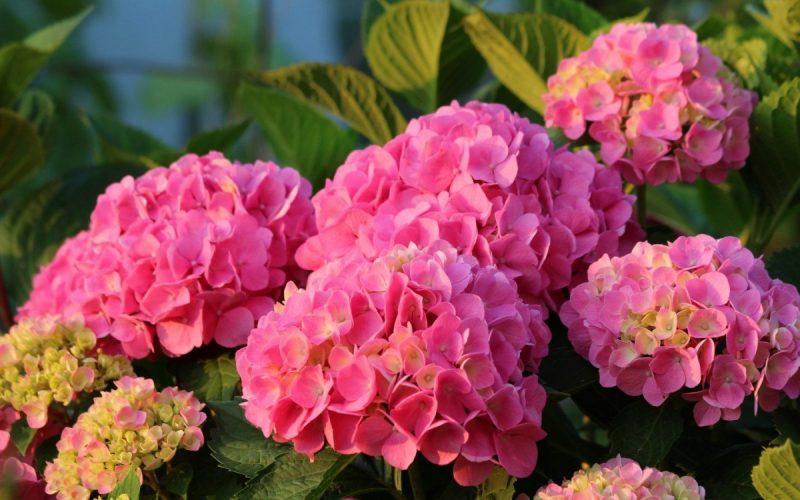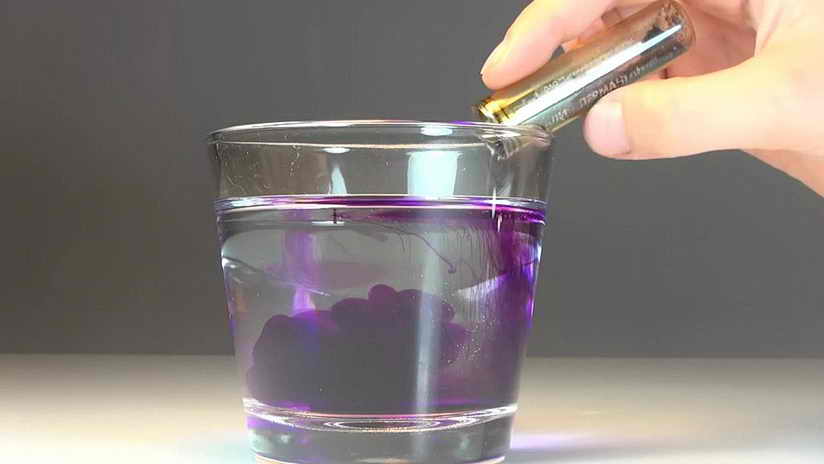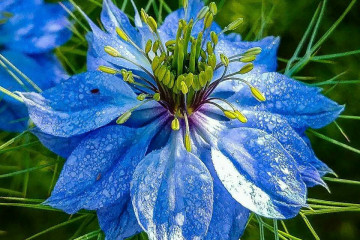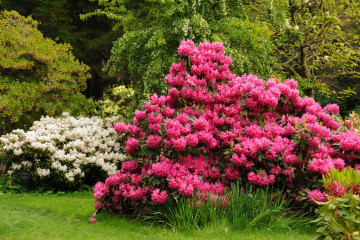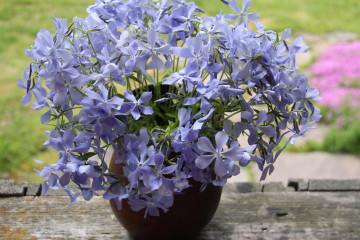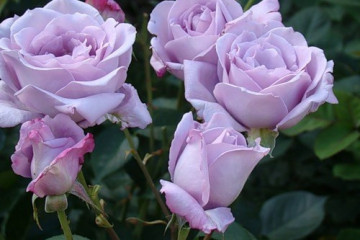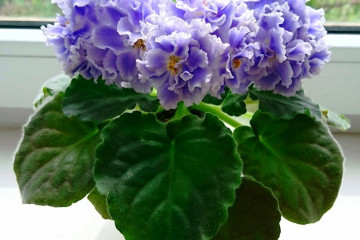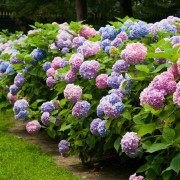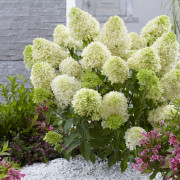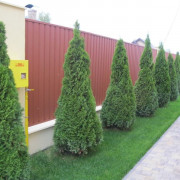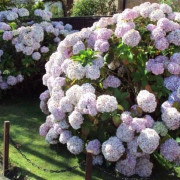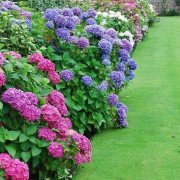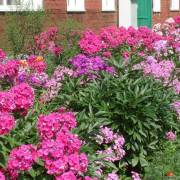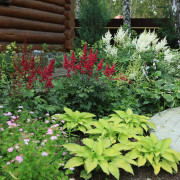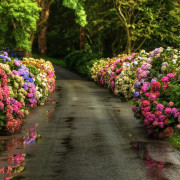How to change the color of a hydrangea from white to blue or pink
Content:
- What types and varieties of hydrangeas can change color
- What determines the color of garden hydrangea inflorescences
- How to "paint" a hydrangea blue or blue: technology and tools
- How to make a hydrangea pink or red: technology and tools
- Folk remedies for changing the color of hydrangeas from white to colored
- General recommendations for changing the color of the shrub
Hydrangea is a beautiful ornamental crop that is often used in landscaping to decorate the garden. This plant is capable of changing its color. The color of the flower petals directly depends on the composition of the soil. So, how to change the color of a hydrangea - this will be discussed in detail in this material.
What types and varieties of hydrangeas can change color
Today, many types of hydrangeas are known, each of which has its own characteristics. The most popular varieties include treelike, oak-leaved, paniculate, garden culture.
Each flower looks very attractive. However, only the garden hydrangea can change the color of the petals. Most often it is called large-leaved. The culture is capable of reaching 1.4-1.8 m in height.
The culture is shaped like a ball. A distinctive feature of the variety is bright emerald foliage. It is large and oval in shape. Notches are present on the leaves.
The inflorescences have large caps. In diameter, they are capable of reaching 15-20 cm. Lignification of the shoots begins only after 1 year. Therefore, the culture should be covered for the winter. Today there are also dwarf varieties - they are suitable for growing at home.
Many varieties of large-leaved hydrangea can vary in color. There is a dependence of color between the acidity of the soil and the presence of aluminum in its composition. The color change is due to the presence of special pigments - anthocyanins. They respond to the pH parameters of the earth.
In addition, there is another pigment in the flowers - delphinidin-3-monoglycositis. It reacts to the conditions in which the flower is grown - primarily to the presence of aluminum in the soil.
To change the color of the inflorescences to blue or blue, preference should be given to the following crop varieties:
- Masya,
- Blue Wave,
- Endless summer.
You can also grow the culture of Renet Steiniger.
The listed varieties can bloom for a long time. The first buds bloom in the middle of summer. At the same time, the flowers adorn the bushes until the very frost.
What determines the color of garden hydrangea inflorescences
Many gardeners are interested in what determines the color of a hydrangea. First of all, the composition of the soil affects the color of the buds.
Soil acidity and methods for its determination
How to make a hydrangea colored? First of all, you need to analyze the parameters of soil acidity.
- Most of the known varieties of hydrangeas have blue flowers when grown in acidic soil - at a pH of 5 or less.
- In neutral soil with pH 6.5 and above, the plant has pink flowers.
- At the same time, the acidity of pH 5-6.5 allows you to get lilac-pink buds.
To determine the balance of the soil, you should pay attention to the weeds that grow on the site. Nettle, bindweed, clover, coltsfoot grow in alkaline soil.
With the active development of woodlice, sorrel, horsetail, dullness or plantain, an increased acidity of the soil can be suspected. In this case, the hydrangea will be blue in color.
Gardening stores sell special test strips. When reacting to the parameters of the acidity of the soil, they are painted in different colors. After determining the indicators, you can understand how to water the hydrangea to change color.
Availability and availability of aluminum
If the soil contains aluminum and a low pH, the flowers themselves will be blue. If only naturally acidic earth is available, it may be necessary to add aluminum sulfate.
Phosphorus
What to do to make the hydrangea blue? It is important to control the content of elements in the soil composition. The amount of phosphorus is of particular importance. This substance binds aluminum ions, converting them into sparingly soluble compounds.
To ensure the mobility of aluminum and make it easier for it to get into the flowers, you need to reduce the amount of phosphorus.
How to "paint" a hydrangea blue or blue: technology and tools
Many gardeners are interested in the question: how to make a blue hydrangea? To achieve the desired results, you need to provide the soil with a sufficient amount of mobile aluminum ions. This can be achieved if the soil has an acidic reaction.
Therefore, first of all, it is necessary to determine the soil pH parameters. To do this, you can use indicators of acidity. In such a situation, it will be possible to purposefully bring the acid balance to the required level.
If the pH is less than 5.5, the flowers of the planted hydrangea will be blue. If the pH is higher, this indicates that the soil is neutral or alkaline. In such a situation, it must be acidified before and during the period of bud formation.
How to water a hydrangea to make it blue? Today there are many popular recipes and dressings that will help achieve good results:
- Potassium alum. They are used for watering bushes. To obtain the desired shade, it is recommended to mix 3 g of alum with 1 liter of water. An adult plant requires about 10 liters of solution. For a young bush, 5 liters is enough. Top dressing should be done 1-2 times a week for 1 month. In this case, the dosage should not be exceeded. An excess of alum causes the foliage to fall off. As a result, bare branches remain on the bushes.
- Aluminum sulfate. To tint the hydrangea petals, you need to take 3-4 g of the substance per 1 liter of water. Also, the product can be used dry. To do this, use 500 g of the substance per 1 square meter of the beds.
- Colloidal sulfur. It must be applied to the soil once a year. This is recommended in the spring. The soil should be fertilized with 40 g of the product per 1 adult plant. On a young bush take 20 g of the substance.
- Special means. They are designed to change the color of the buds. Effective remedies include Rainbow and Blue Hydrangea. The composition contains aluminum sulfate.
How to water the hydrangea so that it changes color? Experts advise using soft water for this purpose. With increased hardness, the liquid should be acidified with lemon juice. You can also use acetic acid. It will help neutralize the alkali present in the water. You can also use rainwater.
Many people are wondering how to water a hydrangea to change its color to blue.In this case, the bush can be fed with fertilizer with a minimum of phosphorus and a high potassium content. Do not use bone meal as a supplement. You should also stop using superphosphate.
If the soil on the site is highly alkaline or contains a lot of lime, it is recommended to plant the hydrangea in containers. Thanks to this, it will be possible to keep the pH parameters under control. To do this, you need to use a special acidic peat soil. To saturate the soil with aluminum, 5-10% clay is added to the composition.
How to make a hydrangea pink or red: technology and tools
What to do to make the hydrangea pink? For this, the aluminum in the soil must be made inaccessible. It is recommended to increase the pH settings to 6.5 or more. If the soil in the area is alkaline, no special action should be taken.
If the pH is below 6.5, it is worth carrying out alkalinization work. To do this, alkaline substances should be added to the composition of the soil - dolomite, chalk, lime. You can also use crushed eggshells.
With iron deficiency, hydrangea can develop iron chlorosis. This pathology is accompanied by lightening of the leaves against the background of green veins. When magnesium chlorosis appears, the leaves acquire a mosaic structure. Such conditions require treatment, therefore, their occurrence should be avoided.
Answering the question of how to paint a hydrangea, you can recommend the following methods:
- Water the blue hydrangea with a weak solution of potassium permanganate. This should be done 1-2 times a week in the spring - before the buds begin to form. In summer, pink flowers will appear on the bush.
- Apply fertilizer with a large amount of nitrogen and iron for fertilizing. In this case, the preparation should contain a minimum amount of potassium.
- If the soil in the area is too acidic, it is best to plant the flower in a container. The substrate should be a peat substrate without aluminum. Any versatile soil is an excellent option. In this case, you should not use clay, expanded clay, mineral soil.
Folk remedies for changing the color of hydrangeas from white to colored
To change the color of a white hydrangea, you should use effective folk recipes.
Potassium permanganate
This product has excellent tinting properties. To change the color of the hydrangea, you need to water it 1-2 times a week with a weak solution of potassium permanganate. With the help of this substance, it is possible to increase the absorption of aluminum. This promotes the formation of blue buds.
At the same time, potassium permanganate helps prevent the development of fungal infections, promotes the laying of flower stalks and more lush flowering.
Before using the substance, make sure that all crystals are well dissolved in water. Also, to change the shade of the buds, fertilizers should be used that contain a lot of nitrogen and phosphorus and a minimum of potassium.
Vinegar
You can use apple cider vinegar or acetic acid to give the buds an interesting color. To prepare a useful solution, it is recommended to take 100 ml of the substance in a bucket of water.
Flower processing is carried out every 2 weeks. Before use, it is necessary to slightly dig up and water the soil.
Tin cans, nails, horseshoes
To change the color of the buds in the ground near the roots, you need to bury cans, horseshoes or nails. It should be borne in mind that folk remedies have a slower effect compared to chemicals. Therefore, it is so important to be patient.
Other means
To change the color of flowers, acidic organic matter can be added to the soil. For this purpose, the following tools are perfect:
- high-moor peat;
- sawdust;
- coffee grounds;
- needles;
- pine bark.
General recommendations for changing the color of the shrub
After changing the color of the plant, you need to provide it with full support. For this, it is important to control the parameters of soil acidity and maintain them at the desired level.
Experts advise against experimenting annually with the color of the petals. A strong change in acidity creates stress for the plant. Therefore, it is recommended to plant flowers in different shades in the garden.
Changing the shade of hydrangea can be done in different ways. To achieve good results, it is necessary to determine the parameters of soil acidity and take measures to change the indicators. High-quality flower care is of great importance. It should be comprehensive.
